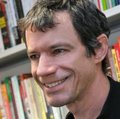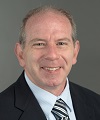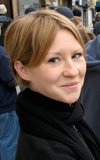October 2017
INDR editorial, October 2017

By Ask Vest Christiansen and John Gleaves
Nothing could be further from our minds than self-praise. Then again. We must acknowledge that the INDR conference in August once more demonstrated the importance and significance of the work of INDR scholars. Even if this conference may be small in terms of absolute numbers of participants, quite a few delegates approached us to say how it, unlike most other conferences, is characterised by an unusual high percentage of quality papers.
Harm reduction and history

By Ian Ritchie, Department of Kinesiology, Brock University, Canada
I hope followers of the INDR Newsletter can accept this commentary for what it is: part reflection on the recent INDR conference in Aarhus, and part commentary on one interesting theme that emerged at the conference, based on some of my own observations and research.
Once again we had a celebration of scholarship at the biennial INDR conference, held August 24-25 at Aarhus University. The major theme of this year’s conference –“Doping in Sport, Doping in Society”– attempted to make links between efforts to control, police, and intervene in criminalized social drugs (such as heroin, cannabis, and so forth) and the same relatively recent attempts to criminalize performance-enhancing drugs (PEDs) in sport, while also broadening the discussion about PEDs to the varied non-elite sport settings in which, it has been discovered, the use of PEDs, and performance and image-enhancing drugs (PIEDs) are quite common.
Finding connections and finding community: reflections on the 2017 indr conference

By Jules Woolf, Assistant Professor, Exercise Science, Health Studies, Physical Education, & Sport Management, Adelphi university
Researchers, practitioners, and stakeholders alike converged on Aarhus last August for the biennial International conference of the INDR. The theme for this, the networks seventh conference, was Doping in Sport, Doping in Society – Lessons, Themes and Connections. As with past conferences, there was much to learn and digest from this assemblys edition. Much information was packed into the two-day conference, such that by the end I was both exhausted and exhilarated.
Seeking an alternative to clean

By April Henning, Brooklyn College, CUNY, USA
One of my frustrations in talking, reading, and writing about (anti-)doping is negotiating clean. Clean has become a kind of short hand when discussing anti-doping efforts in sport and is used widely by anti-doping bodies, sport federations, athletes, media, and fans. Broadly, cleanathletes are those who have not been found to engage in doping practices. In order to attain the ideal of doping-free sport we must clean it up by banning athletes who violate anti-doping rules. Though it may appear to be clear and intuitive, clean is a complex, subjective, and often problematic concept through which to discuss doping and enhancement.Clean becomes even murkier outside the context of elite sport, where anti-doping rules do not apply or are weakly enforced.
INDR conference book chapter submissions

The INDR will continue the tradition of publishing papers presented at the conference. This year, we have reached an agreement with University of Arkansas Press to publish an edited book in their Sport, Culture, and Society Series. More information on the press and the series can be found here.
With an edited book, we expect to be able to accommodate more submissions while providing each author with their own copy of the book and increasing the availability of each chapter. Additionally, all of the keynotes have agreed to publish their papers in the edited book.
Submissions, including notes and references should be no more than 6000 words. Please prepare the manuscript following the University of Arkansas Press style, which includes Webster’s Third New International Dictionary for spelling, usage, and meaning of words and the Chicago Manual of Style for citations and format.
Submitted chapters (or questions) should be sent to John Gleaves at jgleaves@fullerton.edu by December 1st, 2017.